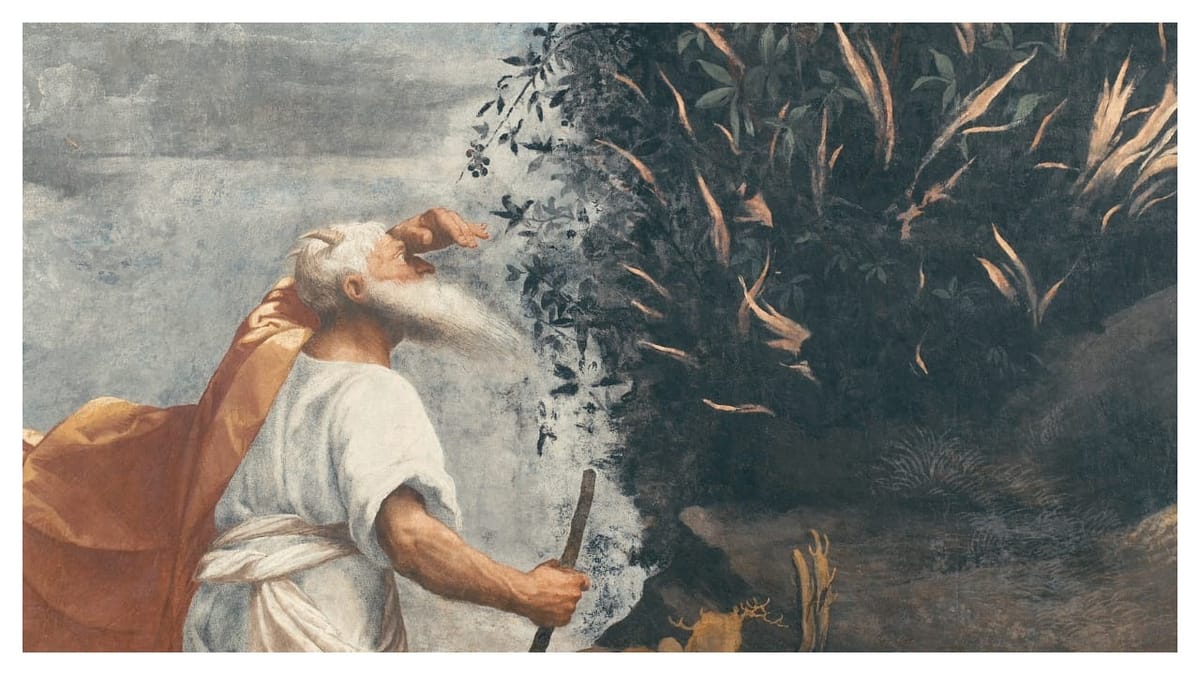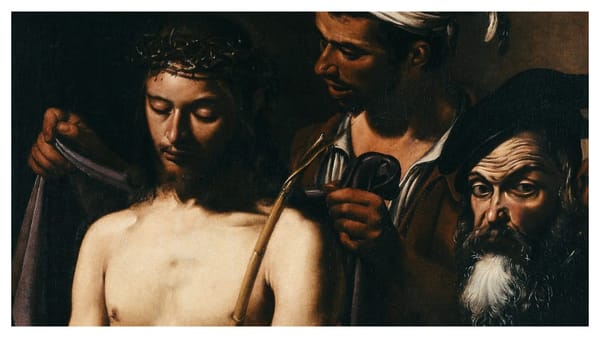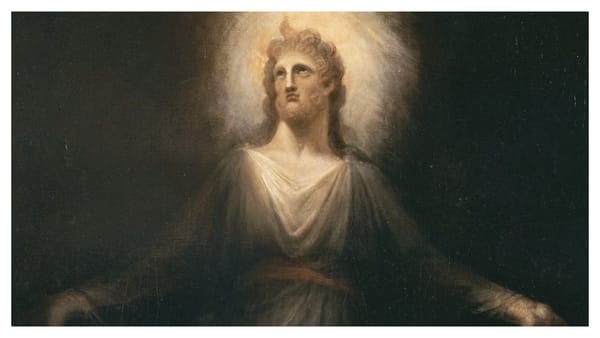The Bush Still Burns
In the wilderness where ambition fades, a bush burns unconsumed. For forty years, Moses never saw it—until emptied by the desert's crucible, he turned aside. God waited then as He waits now: in ordinary moments, calling us to shed our self-reliance and stand on holy ground.

For forty years, Moses wandered the wilderness, a man sculpted by the relentless dust and merciless sun of Sinai. Day after endless day, he guided his flocks through an unyielding land—barren expanses of stone and thorn where the air hung heavy with scorching heat and profound silence. His hands, once delicate in Pharaoh's courts, grew calloused around the shepherd's staff, leading sheep through the ceaseless cycles of mere survival. Forty years of toil, of pursuing the next meager grazing patch, the next precious water source, always in the shadow of Horeb, God's sacred mountain. Forty years of bold ambition quietly dissolving, of self-centered dreams bending beneath time's crushing weight. He was once a man with a calling that pulsed boldly in his veins—to deliver, to lead—now buried beneath the slow, persistent erosion of exile.
And all the while, God burned. In the heart of that desolate place, a bush stood aflame—not a fleeting spark, not a momentary blaze swallowed by the parched wind, but a steady, unwavering fire, mysteriously unconsumed. For forty years, it flickered at the periphery of Moses' existence, unnoticed. The wilderness knew ordinary fire—dry scrub often ignited under the sun's relentless gaze—but this was fundamentally different. This was divine presence, alive and infinitely patient, a flame that refused to devour. God dwelled there, burning steadfastly through the decades, waiting in the ordinary, veiled by the rhythmic cadence of Moses' striving.
The reduction came gradually, inexorably. Forty years stripped him bare—Egypt's celebrated wisdom, his own perceived strength, the fierce pride of his youth—all methodically ground down in the desert's unforgiving crucible. What he thought he knew, what he believed he must accomplish, crumbled like fine sand beneath his weathered feet. His vision blurred with the dust of his own shattered plans until at last, utterly emptied, he truly saw. A bush, burning yet wondrously intact. Not the fire itself, but its profound refusal to consume—a marvel defying the natural laws of a world he thought he'd mastered. "I will turn aside," he whispered, voice trembling with sudden wonder, "and see this great sight" (Exodus 3:3). Reduction had finally cleared his vision; revelation drew him near.
Then, divine encounter. The moment he turned, God spoke: "Moses, Moses" (Exodus 3:4). From the heart of the sacred flame, a voice—intimate, penetrating, vibrantly alive. The presence that had burned unseen now met him face to face. "Do not come near," the Lord commanded. "Remove your sandals from your feet, for the place where you stand is holy ground" (Exodus 3:5). Here was the pivotal turning point: not merely seeing, but surrendering. For forty years, Moses had walked in self-reliance, his sandals treading the well-worn path of human capability. Now, God summoned him beyond—to stand vulnerable before the eternal flame, to relinquish his own limited ways and receive divine empowerment. The ground was holy not through Moses' relentless striving, but because God Himself dwelled there, ready to guide where human effort could never reach.
So it remains with us. God waits, His presence burning in the quiet, overlooked corners of our harried lives—through the toil, the ambition, the countless years we spend pursuing our own mountains. In creation's beginning, His voice walked with us in Eden's garden; now, in this urgent hour, it persistently knocks at our spirit's door (Revelation 3:20). Like Moses, we may recognize our calling, yet cling stubbornly to our wisdom and inevitably falter. But the wilderness of our modern day—the ceaseless noise, the frantic busyness—can transform into the sacred place of reduction, where our ineffective methods are mercifully stripped away. He burns still, eternally patient and perpetually unconsumed, calling us to turn aside from our exhausting striving, to stand trembling in His manifest presence. To remove our sandals—our desperate reliance on ourselves—and step boldly into His abundant grace. He is near. He is waiting. He yearns to transform us into powerful voices for a world desperately in need.




